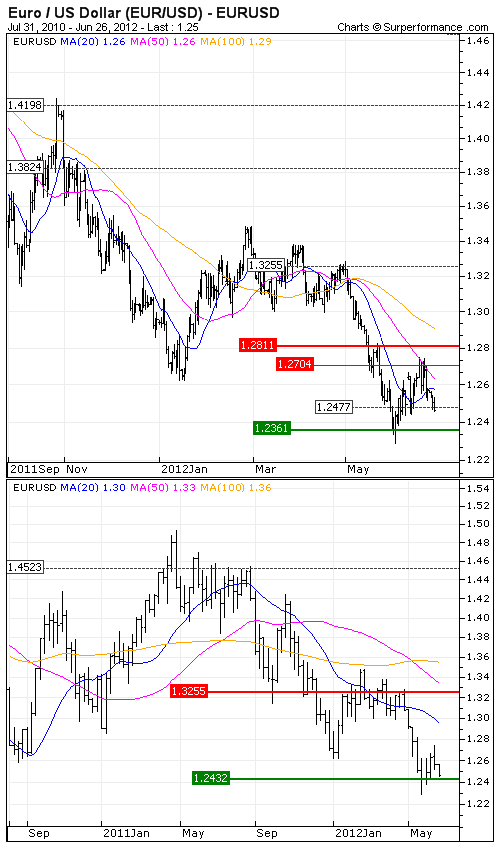Euro / US Dollar (EUR/USD) : International unity against crisis
By Mathieu Burbau
Indeed, although it has renewed its "Operation Twist" until the end of 2012, the FED has favored the rebound of the dollar by remaining very evasive about the possibility of a Quantitative Easing 3, which boosts risk appetite in favour of euro currency.
The willingness of governments to prevent the worst, the strengthening of the IMF to the tune of 456 billion at the G20 in Mexico and the agreement of Angela Merkel for the redemption of bonds of struggling countries are good strengths for the euro.
Finally, the leaders of Germany, France, Italy and Spain seem to show more cohesion these days. They agreed on the need to first restore growth at a meeting to prepare the EU summit on 28/29 June. At the same time, the first independent audits of the Spanish banking sector reported a need to refinance 62 billion euros, less than 100 billion announced by the EU.
Graphically, the euro is declining to 20-days moving average but the trend keeps a short term bullish bias that could allow consolidation in the coming sessions. Investors can anticipate a rebound to USD 1.2704 but they should be prudent beyond this threshold in a context of risk aversion.





